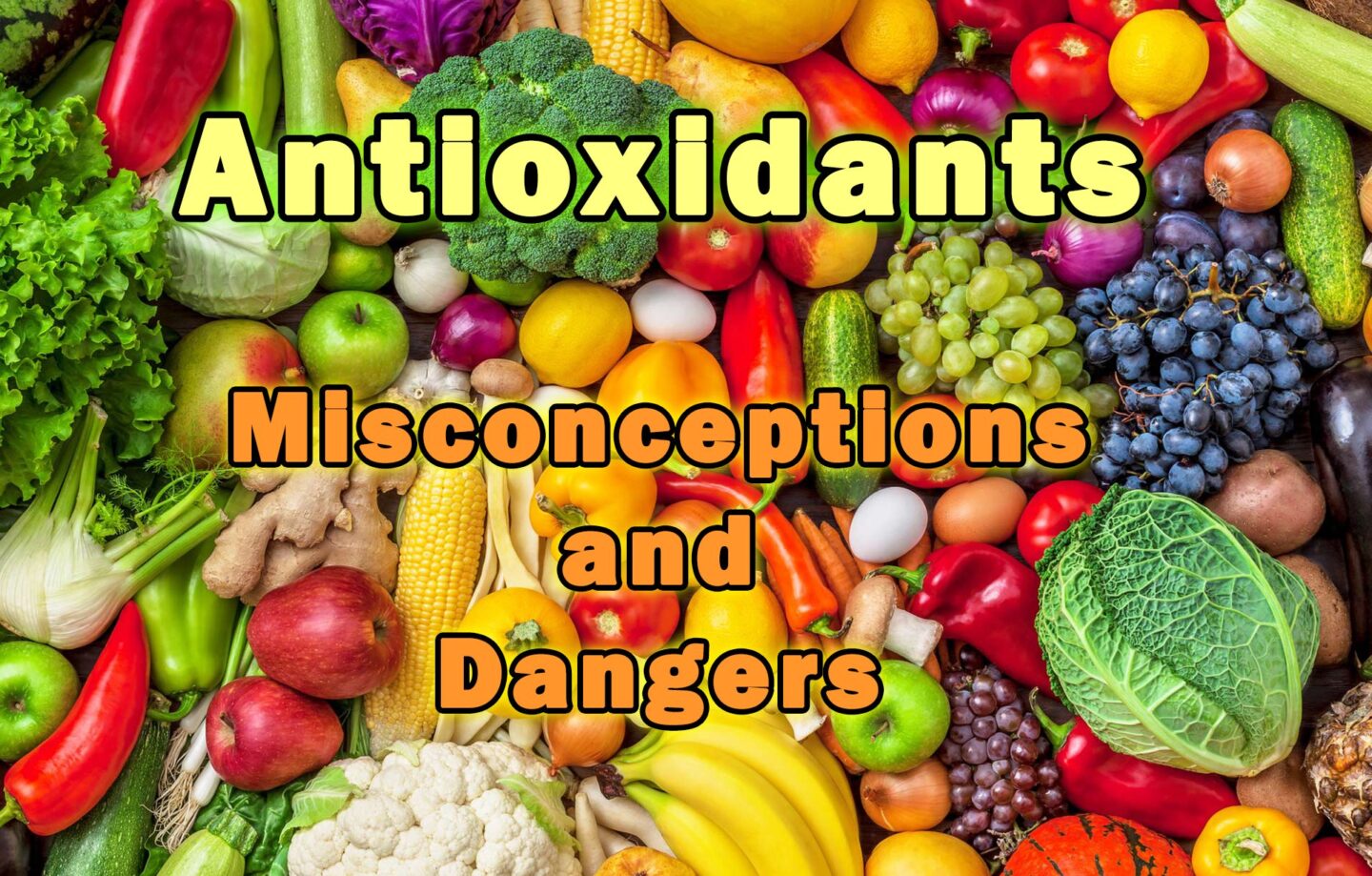It’s been a few years since antioxidants exploded in popularity and flooded the “health-food” and even sports supplement market. Sure, antioxidants can inhibit oxidation and thereby lower the production of free radicals (which can harm our cells). However, the main thing influencing oxidation and the production of free radicals is your diet, your environment (pollution) and amount of exercise. As for diet, the biggest offender is carbohydrate metabolism.
When we produce energy from carbohydrates, carbohydrates and oxygen transform into carbon dioxide and water. This process also produces toxic oxygen radicals which must be decomposed immediately, as they would otherwise cause severe damage to our cells.
This simply means that if you consume carbohydrates, your need for antioxidants increases. If you eat several times a day, the total daily load increases with each meal – and your cells get attacked every time you eat. In other words, consuming carbohydrates, eating the traditional 5 to 8 meals a day while exercising a lot will wreak havoc on your health; contributing to premature aging – both on the outside and inside – and a reduced lifespan.
“But what if I increase my antioxidant intake?”, I hear someone stutter.
Even if you consume foods rich in antioxidants, the bioavailability is very low, so most of it will not be utilized in the body. Remember, humans are carnivores, we are not designed to extract nutrition from plant foods. Instead, it will act as an antinutrient and some of it will turn into oxalates, which calcify our blood vessels, our joints and our kidneys (kidney stones) – as seen with vitamin C. Actually, supplements are even worse as they are highly concentrated while having an abysmal bioavailability. Most studies on the vast majority of antioxidant supplements have only shown promise in test tubes, not when administered to people – simply because the bioavailability is miniscule, there is no ‘food synergy’, and therefore they end up hurting us instead.
So, sorry to say, you can not get enough antioxidants to make up for a stupid lifestyle and bad diet. If you want to be healthy, you need to change your approach towards food and life.
If we go to the opposite side of the spectrum; if you only, or most of the time, consume protein and fats (and you are in ketosis most of the day), only eat 1 to 3 meals a day, and mainly exercise for keeping fit and strong, your oxidation and demand for antioxidants will be minimal. The amount found in muscle meat is enough for most people, and if you consume some organ meats or raw dairy, you’ll be good even in more harsh conditions – as in polluted areas.
Also, the strongest and most abundant antioxidant in the human body is uric acid, something that our body produces from endogenous, and to a lesser degree, from exogenous purines (derived largely from animal proteins.) As for endogenous, that means mainly from damaged, dying and dead cells. And that is why uric acid production and oxidative protection is still high during fasting.
In other words, if you follow our natural species’ appropriate animal-based diet, your body will be able to keep up with oxidation in most scenarios, even if you add in some plant-foods now and then for texture or to get extra calories for gaining weight (as in carbohydrates before and/or after a workout). It’s nothing to worry about if your nutritional foundation is solid.
And if you exercise a lot and/or are extremely active, and you have a lot of muscle mass and need some carbohydrates to maintain or gain weight, simply add in a little bit more organ meat to get some extra purines, vitamin A, C, and CoQ10, and you’ll be fine. Liver, kidneys and heart are golden!
